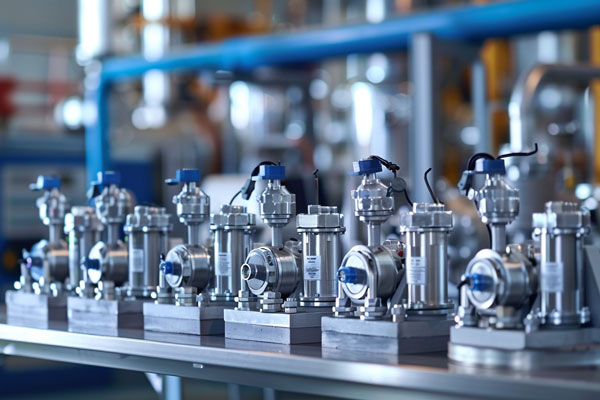Best Materials for Chemical Pumps to Resist Corrosion
Selecting the right material for chemical pumps is crucial in environments where corrosion is a significant concern. The wrong choice can lead to pump failure, costly downtime, and potential safety hazards. Here, we explore the best materials known for their corrosion resistance and suitability for chemical pump applications.
The best materials for chemical pumps to resist corrosion include stainless steel (316 and 316L), Hastelloy, titanium, PTFE (Teflon), and PVDF (Kynar).
Read on to learn more about each material's benefits and applications.

Materials
Stainless Steel (316 and 316L)
Stainless steel, particularly grades 316 and 316L, is renowned for its excellent corrosion resistance, especially against acids and chloride environments. These grades are commonly used in various industries, including chemical processing and wastewater treatment. The addition of molybdenum enhances their resistance to pitting and crevice corrosion.
Hastelloy
Hastelloy alloys are high-performance materials known for their exceptional resistance to pitting, stress corrosion cracking, and oxidation. They are ideal for harsh environments where other metals might fail. Hastelloy is often used in the chemical processing, petrochemical, and pharmaceutical industries.
Titanium
Titanium is favored for its outstanding resistance to a wide range of corrosive substances, including seawater and chlorine. It is lightweight yet strong, making it suitable for many industrial applications. Titanium is commonly used in desalination plants, chemical processing, and power generation.
PTFE (Teflon)
PTFE, commonly known as Teflon, offers superb chemical resistance and is inert to most chemicals. It is widely used in pumps handling highly aggressive chemicals. PTFE is ideal for applications requiring high purity and low contamination.
PVDF (Kynar)
PVDF, or Kynar, is a highly durable plastic with excellent resistance to solvents, acids, and bases. It is commonly used in the chemical processing industry due to its strength and resistance to UV degradation. PVDF is also used in applications where high purity is critical.
Factors to Consider
When choosing a material for your chemical pump, consider the following:
Chemical Compatibility: Ensure the material can withstand the specific chemicals in your process.
Temperature Resistance: The material must maintain its properties under the operating temperature conditions.
Mechanical Properties: Evaluate the material's strength and durability to ensure it can handle the operational demands.
Conclusion
Selecting the right material for your chemical pump is essential for ensuring durability, efficiency, and safety. By considering factors such as chemical compatibility, temperature resistance, and mechanical properties, you can choose the best material to resist corrosion and prolong the lifespan of your pump.
